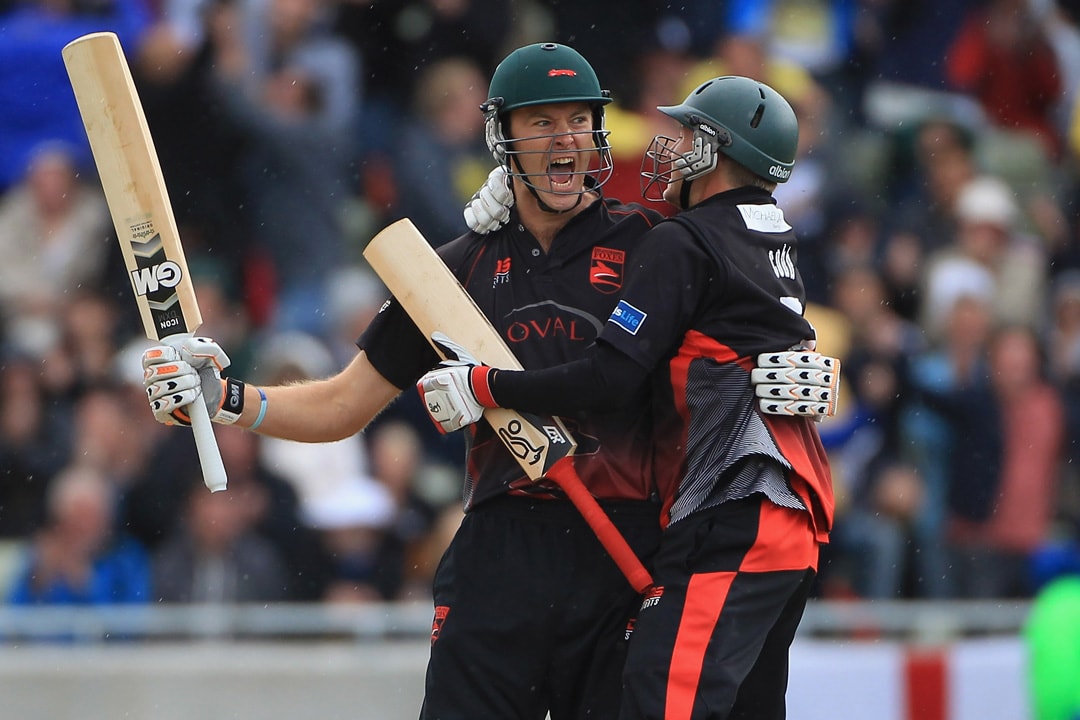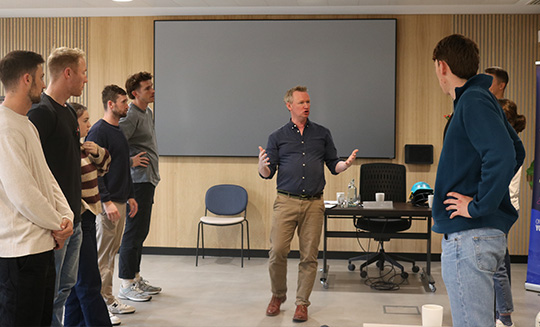PCA PRESS RELEASE
Former Essex, Nottinghamshire and Leicestershire batsman has broadened his horizons since retiring from professional cricket.
To see more articles. Click here
Will Jefferson recently told the Professional Cricketers’ Association that he “was unable to visualise a career beyond playing cricket” before he gained the necessary clarity to transition into a fulfilling second career.
The 39-year-old was forced to retire in 2012 after a succession of injuries. Since then, Jefferson has founded Performance Catalyst (PC), an organisation that brings clarity to individuals and teams, develops their skills and equips them with the tools that empower them to realise their potential in the worlds of business, sport and life.
Jefferson explains how he prepared for life after cricket during his playing career, as well as describing how he overcame the challenges that setting up a new business presents.
- What was the vision behind the creation of Performance Catalyst (PC)?
- It was an idea that really came to life sitting around the kitchen table, surrounded by family. We were talking about catalytic moments throughout my career that helped me tap into potential that I knew was there but didn’t know how to access, as well as untapped potential that I wasn’t aware I had. I set my mind to doing the same for others.
- What does PC deliver?
- The role of our business is to build close relationships with individuals, teams and organisations. We work together, adding the objectivity that brings clarity. It’s normally just a little ‘drop of something’ that is missing that will ultimately lead to higher levels of performance for our clients. We design and deliver the framework for organisational development and culture change. We believe that tapping into the potential of the individual will empower them to be better employees, better team members and better leaders, which in turn will contribute to the success of the company as well as its wider social impact.
- What are the challenges of setting up your own business?
- Setting up a venture can be daunting for anyone making the leap, until you understand that you don’t have to excel in all areas of the business. The key is to understand where your strengths lie, then to surround yourself with people who balance these. Doing this gave me the confidence to transition from receiving a regular income for the last five years to now running my own business, all whilst having a young family to support.
- When did you start thinking about life after cricket and what expertise did you seek to help you?
- A big turning point was engaging the services of a career coach, when I was injured and uncertain about my future. What could have been (and is for many cricketers) a period dominated by uncertainty and fear about injury, impending surgery and the possible end of my sporting career turned out to be one of the most rewarding and stimulating summers of my life. We focussed on certain objectives and frequently checked and revisited them to make sure that we remained on track for the next stage of my career. I also drew confidence from great conversations with lots of people within the game. If you pick up the phone or ask for a coffee, people will tend to generously give up their time. It’s a thread that bonds people throughout the game and for which we are so fortunate.

- What emotions did you feel about it life after cricket?
- Emotionally, it was a really hard (but very common for professional sportspeople) place to be in because your working life is so intertwined with your identity, your future and all your loved ones around you. I was unable to visualise a genuinely fulfilling career for myself beyond playing sport for a living. I overcame this fear by opening my mind and meeting as many different people as I could from all walks of life. I enjoyed the privilege of income protection for two years, which spurred me on to make the very most of that time. I developed a new set of skills and gained qualifications that would play a key role in my development and future career.
- How much thought and planning did you put into life after cricket?
- While I was playing cricket, I focussed my thoughts on equipping myself to make important life decisions when the time came. Completing a Myers Briggs Personality Profile when on my Level 4 Coaching qualification was a real turning point. I used the results to understand myself better and how to better equip myself to get the best out of other people. This momentum led to me completing the Inside Performance NLP for Sport Master Practitioner course, another qualification which has had an enormous impact on my personal and professional development. I also took advantage of the courses that the PCA offered during the latter stages of my playing career, attending a number of these to help further develop my skill set and clarify my thinking.
- Would you have done anything differently in terms of this preparation?
- I certainly would have started to prepare for a future career earlier. It’s easy to bury your head in the sand and think that you will never cross the boundary rope for the last time. I waited the best part of 10 years to do a serious qualification between my university degree and my ECB Level 4 Coaching course. The latter ignited my determination to build momentum for the next stage of my working life.
- What skills and experiences from being a cricketer have helped you in the business world?
- There are so many. The game made me more resilient and gave me a real understanding of team culture and the ability to perform under pressure. In the business environment you’re often in competition with those who have more experience, so you need to be developing quickly whilst performing to a consistently high standard. I am a big believer in making and keeping strong relationships with people. Playing cricket professionally meant I had to make extra effort staying in touch with friends from school and university. Those efforts have paid dividends since my retirement. Staying fresh in people’s minds is important in business, and especially in consultancy – you never know when people might require your future services.
- Any advice for current players?
- See cricket as one of many careers you will have in your lifetime and actively prepare for life after it whilst you are still in the game. The PCA offers players excellent support, as well as a number of great opportunities. Be sure to use it. You should also spend time investing in people and building lasting relationships with the people around you. They will be essential to you and your future and likely you to theirs. Try to engage with people, such as your PCA PDM, that will challenge you and ask you the right questions to help give you more clarity.
Jefferson is happy to speak to any player who is interested in his career path and for more information on the PCA’s Personal Development and Welfare Programme click here or contact your regional Personal Development Manager.







